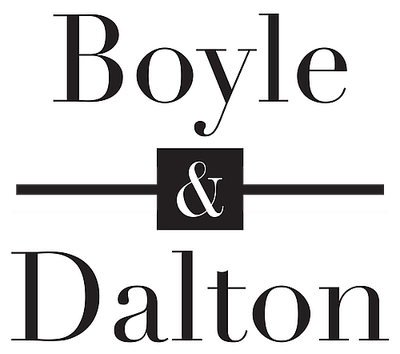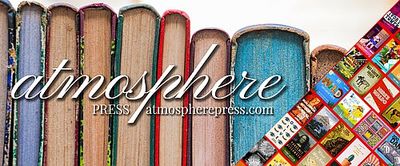Revival of the Pet Negro in American History and Politics
Pleasant Fictions
Revival of the Pet Negro in American History and Politics is an expose' and revised American history by Prof. Lionel Bascom
Pleasant Fictions
Revival of the Pet Negro in American History and Politics
The Pet Negro Syndrome remained alive and vibrant in the fall of 2017 in the first year of the Trump presidency after the recent unpleasantness and violence in Charlottesville, Va. This is when I began to write Op-Ed columns to add my voice to the growing number of opinions opposing the daily habit of lying by the newly elected White House administration . As I began to look more closely at his evolving, stormy presidency, it quickly became clear to me that the Trump presidency was eerily familiar to racial feudalism and tensions in the country after the Reconstruction era of 1865. White supremacists led by 19th Century reformists then violently opposed biracial governments that spread rapidly throughout the south after the Civil War.
We are dangerously nearing a tipping point where this environment of fear and hatred is being revived and encouraged. My book tracts Trump's trolling of black celebrities, athletes and politicians, beckoning them to belong to a growing list of Pet Negroes. This is happening at the same time the President was aligning himself with white supremacists like those who marched in Charlottesville. This is not a book about Trump or his administration. Their anti-factual, untruthful way of governing does highlight a tactic of racists dating back to the end of slavery. When pro slavery reformers saw their all white world turned up side down after the Civil War, they successfully enacted legal segregation and changed history to suit an all white point of view. That backlash to the end of slavery was successful. The resurgence of white supremacists today is a backlash to the eight year term of the first black president of the United States, Barack Obama.
Recent Example
In 2016, an NFL player refused to stand during the playing of the national anthem before games to protest police brutality against black men. The following year, quarterback Colin Kaepernick's knelt in protest and this protest spread to other teams during the season. Kaepermick was castigated by fans and the Trump administration for being unpatriotic and when his contract with the Indianapolis Colts expired, Kaepermick became an unemployed NFL player. Trump was furious when Kaepernick's protest spread throughout the league and NFL players refused the role of being Trump's Pet Negro.
Ironically, the protest revived an old argument among historians over the meaning of the anthem. Unwittingly, Kaepernick's protest over the anthem and his civil disobedience, resurrects a long standing debate over the meaning of the anthem and the myths surrounding it. While the song may foster patriotic feelings among Americans unfamiliar with its history and the dispute among historians over its meaning, one argument says the song actually mocks slaves who escaped to freedom aboard British ships during the War of 1812 when Francis Scot Key wrote the stanzas in a poem that became the anthem.
Pet Negroes exposes an anthem that began as a poem celebrating the murders of runaway slaves, not American patriotism, and the book uncovers numerous other false narratives about African Americans throughout American history.
Among These:
1. History depicts Thomas Jefferson as a noble Virginia land owner and a founding father of America who wrote the text of the Declaration of Independence and claimed "all men were created equal." Jefferson, who owned more than 600 slaves in his lifetime and never freed them. When he wrote "all men, he meant all white men with property were created equal, not all men and especially not black men. His image in history is wrapped up in a faux patriotism like the anthem that was born in slavery, not made up of the ideals of freedom and fairness we now old scared. Black Americans have never been seen as equals by presidents Jefferson or Trump. When Kaepernick and black NFL players would not bow to repeated demands by Trump that they behave (like pet Negroes), Kaepernick was shunned by the NFL and lost his job in the league. Jefferson was a white supremacist all of this life, a rapists and child molester.
2. Abraham Lincoln, hailed as the great emancipator who ended slavery in the United States, was a white separatists and the backbone of a sweeping colonist movement that would have deported all black people in the United States to new colonies in the Caribbean and Africa. Although he wrote and signed the Emancipation Proclamation, this executive order did not free all slaves. It was a clever ploy to convince Confederate states to return to the union. The document did not free slaves in states controlled by the Union. It did say that slaves in Confederate states were free, a claim Lincoln could not enforce immediately. When news of the proclamation spread, slaves fled plantations throughout the south and they gradually took up refuge among union soldiers as federal troops took territory in southern states. Slavery did not end officially until Congress passed the 13th Amendment and Lincoln signed it.
3. Uncle Tom, the slave tortured and killed by slave catcher Simon Legree in the novel, Uncle Tom's Cabin, is generally depicted as a traitor and a snitch. In the novel, Tom was a Christ-like literary figure, not the spineless snitch his reputation suggests he was today in popular culture. The narrative of the novel was twisted over time because to Legree, Tom was a traitor when he would not betray fellow slaves who had escaped. Literary scholars should reclaim Tom's tarnished reputation as a sellout and declare him the black hero author Harriet Beecher Stowe intended for him to be.
My activism and the idea for this book was spawn after protesters in Virginia demanded a statute of Confederate Gen. Robert E. Lee be removed last July. Protesters clashed with white supremacists in Charlottesville where one woman was killed by a speeding car that crashed into a crowd protesting the presence of Alt-Right racists marching there. When President Trump failed to condemn the violence at a news conference and obfuscated the truth about incident by saying "there were good people on both sides," I knew the incident represented more than just another story about Trump or a story about racial violence in the south. The idea for this book blossomed in my mind weeks later when Trump & Company attacked NFL players who had begun kneeling at games throughout the 2017 season. The demonstrations began in protest against police brutality of black men. Trump administration changed the narrative, saying the actions by black NFL players was unpatriotic, ignoring the fact that the protests were about the slayings of unarmed black men, it was not about patriotism. Trump personally demonized the black players who took to kneeling at games rather than salute the American flag, claiming they were openly opposing American values and disrespecting the flag. Like Uncle Tom, these players became the unwitting heroes in an old debate among historians about Francis Scott Key, the anti-slavery novel, Uncle Tom's Cabin and a poem by the wealthy slave owner that also mocks escaped slaves who fought for the British in the War of 1812.
Trump was trolling for NFL players to cower in his wake and they refused to become what Zora Neale Hurston and Alice Walker called "Pet Negroes." The president's attack mirrors Simon Legree's attack on Uncle Tom, who refused to cower in the face of consequences that ended his life. Trump's attack on Kaepernick ended his pro football career. This tactic hurls us back to frightening the days of slavery and segregation in this country during the so-called Jim Crow days in America and the popular minstrel stage shows that denigrated blacks for centuries as ignorant coons and darkies.
Trump was using the simple trick of lying repeatedly, a tactic as old as the American republic itself. It has been the tool of white supremacists throughout American history, a deception an Ebony Magazine editor once called "pleasant fictions." Lerone Bennett, the longtime executive editor of Ebony magazine, exposed this trick in his book, Forced into Glory: Abraham Lincoln's White Dream. Bennett was talking about the image of Abraham Lincoln as "the great emancipator" wrongly credited with freeing slaves with the Emancipation Proclamation. "It never happened," Bennett said. Lincoln was a white supremacists, not the anti-racist that literally thousands of Lincoln biographies (more than 17,000) claim on his behalf. It is a claim made in the 2012 film Lincoln by Steven Spielberg. This long held view of Lincoln includes notables like Doris Kearns-Goodwin, author of the book, Team of Rivals: The Political Genius of Abraham Lincoln. A consultant for Spielberg's film, Goodwin claims that "Armies of scholars, meticulously investigating every aspect of [Lincoln’s] life, have failed to find a single act of racial bigotry on his part." It did not require an army of researchers for me to find out where Illinois native Lincoln stood on the scales of bigotry in 1858. It merely took reading his own words in the well publicized debates and speeches he made on the subject. In The Collected Works of Abraham Lincoln, the president is quoted as saying "I will say then that I am not, nor ever have been in favor of bringing about in any way the social and political equality of the white and black races, that I am not nor ever have been in favor of making voters or jurors of Negroes, nor of qualifying them to hold office, nor to intermarry with white people . . . . I as much as any man am in favor of the superior position assigned to the white race," he said in the first Lincoln-Douglas debate on Sept. 18, 1858 in Ottawa, Illinois.
Pleasant Fictions is an expose' of these lies and many other "alternative facts" widely believed and disseminated in reference books, history websites, films, television programs and textbooks.
This is a book for students of African American history, American history or politics. Marketing would mainly be channeled through LinkedIn, media watchers and the politically astute
A campaign launched on Facebook and Twitter
by Ta-Nehisi Coates
The New Jim Crow
By Michelle Alexander and Cornel West

I have taught writing in the Department of Writing, Linguistics and Creative Process at Western Connecticut State University since 1987 as both a full time and adjunct professor.
250 copies • Completed manuscript.
Atlantic Publishing has been providing millions of readers information to jumpstart their careers, start businesses, manage employees, invest, plan for retirement, learn technologies, build relationships, and live rewarding, fulfilling lives. Our award-winning authors and publication staff strive to make our products the best and most up-to-date available. We go further than most publishers to get our customers the best products.

500 copies • Complete manuscript.
Blooming Twig is an award-winning boutique publishing house, media company, and thought leadership marketing agency. Based in New York City and Tulsa, we have represented and re-branded hundreds of thought leaders, published more than 400 titles in all genres, and built up a like-minded following for authors, speakers, trainers, and organizations with our bleeding-edge marketing strategies. Blooming Twig is about giving the people with something to say (“thought leaders”) a platform, walking its clients up to their own influencer pulpit, and making sure there is a like-minded crowd assembled to hear the meaningful message.

250 copies • Completed manuscript.
Boyle & Dalton was founded in 2014 and publishes works of fiction, non-fiction, and poetry. The world of publishing is changing, we're changing with it. Our founder Brad Pauquette, conceptualized a hybrid model that balances the financial and rights model of self-publishing with the quality controls and production excellence of a traditional publisher. Our designers and editors produce exceptional books that are distributed in both print and digital formats to all major retailers, including Amazon.com and BarnesandNoble.com. Boyle & Dalton carefully consider all submissions for publication, based on manuscript quality. We do not accept erotica or children's books.

Mascot Books is a full-service hybrid publisher dedicated to helping authors at all stages of their publishing journey create a high-quality printed or digital book that matches their vision. With comprehensive editorial, design, marketing, production, and distribution services, our authors have the support of an experienced publishing team while still retaining one of the highest royalty percentages in the business.

250 copies • Partial manuscript.
Atmosphere Press is an independent publisher dedicated to author rights. We publish in all genres and have an exceptional editorial, design, and promotional staff. We stand for Honesty, Transparency, Professionalism, and Kindness. We want our authors and their readers to be blown away when they first hold that book in their hands. It needs to look good inside and out, and feel good to the touch. And, of course, the words need to be top-notch, and our editors are devoted to making that the case.

250 copies • Partial manuscript.
Authors Unite helps you become a profitable author and make an impact. We take care of printing and distribution through major online retailers, developmental editing, and proofreading with unlimited revisions. We take care of the entire process for you from book cover design all the way to set up your backend so all your book royalties go straight to your bank account. We can also help with ghostwriting if you prefer not to have to figure out all the steps on how to write a book yourself.
With our book marketing services, you don’t need to worry about figuring out all the steps on how to market a book or how to become a bestselling author. We’ve helped hundreds of authors become bestselling authors on Amazon, USA Today, and The Wall Street Journal. We take care of the entire book launch process for you to help you sell thousands of copies of your book and become a bestselling author.
View case studies here: https://authorsunite.com

100 copies • Partial manuscript.
Bookmobile provides book printing, graphic design, and other resources to support book publishers in an ever-changing environment. Superior quality, excellent customer service, flexibility, and timely turnarounds have attracted nearly 1,000 satisfied clients to Bookmobile, including trade houses, university presses, independent publishers, museums, galleries, artists, and more. In addition, we manage eBook conversions and produce galleys, and regularly provide short-run reprints of 750 copies or fewer for major publishers such as Graywolf Press.

Looking for all types of books, including fiction, children's books, health, memoir, business books, and cookbooks
Bright Communications LLC is a woman- and veteran-owned custom publisher in Hellertown, PA. Founding CEO Jennifer Bright is a Book Doula, whose passion is helping authors bring their books to life. Our team of expert editorial, design, and marketing pros help authors go from idea to completed books and retain 100% of the rights to their work. We also offer four custom publishing packages.

Gladiator Publishing Co. has held a reputation in the Literary Industry for nearly 100 Years as a Writer-Loyal company. Nearly 100-years later, Gladiator Publishing Company still maintains that strong characteristic. We place our Authors publications first and foremost. You may hear many other "Publishing entities" state that they are "the first" to do this or the "originator/pioneer" of that. If everyone is using the same marketing, promotional, and advertising pipelines what makes them so original?
As the proud recipients of six-awards in 2018 for our innovative marketing techniques, media outreach, extremely low budget compared to the Global Industry Standard (72-83% cheaper), and an Author-inclusive style, it is no wonder we are the #1 Requested Publishing Service on the East Coast. We are staffed with industry-specific professionals that are dedicated to market and brand development.
Full Editing Services (substantive, copy, formatting, proofreading, story flow, line) are INCLUDED in the price. No hidden fees, no extra cost for something that Publishing Services should be more than happy to provide to benefit the manuscripts success. The industry has turned toward greed and away from literature. It's sick and inappropriate, it's ok to agree, they know it too.
Maintain 100% of your royalties in all formats.
Maintain 100% of your Copyrights, Intellectual Property, and Creative Control.
You be the Author and we'll be the Publisher.
Happy Writings!!

100 copies • Completed manuscript.
Happy Self Publishing has helped 500+ authors to get their books self-published, hit the #1 position in the Amazon bestseller charts, and also establish their author website & brand to grow their business. And the best thing is, we do all this without taking away your rights and royalties. Let's schedule a call to discuss the next steps in your book project: www.meetme.so/jyotsnaramachandran

Ingram is a rather large company with several different divisions and supplies books to bookstores and libraries in over 200 countries around the world. Ingram also has a print on demand digital printing company, Lightning Source. IngramSpark is the platform that combines those two services together. At IngramSpark, we work with authors and independent publishers to print their books for orders they need (no minimum order) and we have a way to list the books as available for sale to all of Ingram’s 39,000+ customers- distributors, bookstores, retail outlets, libraries, etc., so you never miss a sale. You would provide us with the print-ready digital files (one for the cover and one for the interior) and we print the books as they are sold through our distribution partner’s websites. We pay you for those sales approximately 90 days later. The compensation you earn is based on the retail price you set, minus the wholesale discount you offer our distribution partners, minus the print cost.

Sample Essay
An Aspect of the Race Problem Ignored by Zealous Reformers:
The Pet Negro System
by Zora Neale Hurston
American Mercury Magazine 1943
Brothers and Sisters, I take my text this morning from the Book of Dixie. I take my text and I take my time. Now it says here, "And every white man shall be allowed to pet himself a Negro. Yea, he shall take a black man unto’ himself to pet andto cherish, and this same Negro shall be perfect in his sight. Nor shall hatred among the races of men, nor conditions of strife in the walled cities, cause his pride and pleasure in his own Negro to wane."
Now, belov-ed Brothers and Sisters, I see you have all woke up and you can’t wait till the service is over to ask me how come ? So I will read you further from the sacred word which says here:
"Thus spake the Prophet of Dixie when slavery was yet a young thing, for he saw the yearning in the hearts of men. And the dwellers in the bleak North, they who pass old phrases through their mouths, shall cry out and say, ’What are these strange utterances? Is it not written that the hand of every white man in the south is raised against his black brother? Do not the sons of Japheth drive the Hammites before them like beasts? Do they not lodge them in shacks and hovels and force them to share the crops? Is not the condition of black men in the South most horrible? Then how doth this scribe named Hurston speak of pet Negroes ?
Perchance she hath drunk of wine, and it has stung her like an adder?’ "
Now, my belov-ed, before you explode in fury you might look to see if you know your facts or if you merely know your phrases. It happens that there are more angles to this race-adjustment business than are ever pointed out to the public, white, black or in-between. Wellmeaning outsiders make plans that look perfect from where they sit, possibly in some New York office.
But these plans get wrecked on hidden snags. John Brown at Harpers Ferry is a notable instance. The simple race-agin-race pattern of those articles and speeches on the subject is not that simple at all. The actual conditions do not jibe with the fulminations of the so-calle spokesmen of the white South, nor with the rhetoric of the champions of the Negro cause either.
II
Big men like [state senator] Bilbo, Heflin and Tillman ( INSERT TITLES HERE) bellow threats which they know they couldn’t carry out eve in their own districts. The orators at both extremes may glint and glitter in generalities, but the South lives and thinks in individuals. The North has no interest in the particular Negro, but talks of justice for the whole. The South has no interest, and pretends none, in the mass of Negroes but is very much concerned about the individual. So that brings us to the pet Negro, because to me at least it symbolizes the web of feelings and mutual dependencies spun by generations and generations of living together and natural adjustment. It isn’t half as pretty as the ideal adjustment of theorizers, but it’s … more real and durable, and a lot of black folk, I’m afraid, find it mighty cosy.
The pet Negro, belov-ed, is someone whom a particular white person or persons wants to have and to do all the things forbidden to other Negroes. It can be Aunt Sue, Uncle Stump, or the black man at the head of some Negro organization. Let us call him John Harper. John is the pet of Colonel Cary and his lady, and Colonel Cary swings a lot of weight in his community. The Colonel will tell you that he opposes higher education for Negroes. It makes them mean and cunning. Bad stuff for Negroes. He is against having lovely, simple blacks turned into rascals by too much schooling. But there are exceptions. Take John, for instance. Worked hard, saved up his money and went up there to Howard University and got his degree in education. Smart as a whip Seeing that John had such a fine head, of course he helped John out when necessary. Not that he would do such a thing for the average darky, no sir! He is no nigger lover. Strictly unconstructed Southerner, willing to battle for white supremacy! But his John is different. So naturally when John finished college and came home, Colonel Cary knew he was the very man to be principal of the Negro high school, and John got the post even though someone else had to be eased out. And making a fine job of it.
Decent, self-respecting fellow. Built himself a nice home and bought himself a nice car. John’s wife is county nurse; the Colonel spoke to a few people about it and she got the job. John’s children are smart and have good manners. If all the Negroes were like them he wouldn’t mind what advancement they made.
But the rest of them, of course, lie like the cross-ties from New York to Key West. They steal things and get drunk. Too bad, but Negroes are like that. Now there are some prominent white folk who don’t see eye to eye with Colonel Cary about this John Harper. They each have a Negro in mind who is far superior to John. They listen to eulogies about John only because they wish to be listined to about their own pets. They pull strings for the Colonel’s favorites knowing that they will get the same thing done for theirs.
Now, how can the Colonel make his attitude towards John Harper jibe with his general attitude towards Negroes? Easy enough. He got his general attitude by tradition. But he found John truthful and honest, clean, as white inside as anyone reliable and a faithful friend. He likes John and so considers him eIse. The treatment made and provided for Negroes generally is suspended, restrained and done away with. He knows that John is able to learn what white people of similar opportunities learn. Colonel Cary’s affection and respect for John, however, in no way extend to black folk in general. When you understand that, you see why it is so difficult to change certain things in the South. His particular Negroes are not suffering from the strictures, and the rest are no concern of the Colonel’s. Let their own white friends do for them. If they are worth the powder and lead it would take to kill them, they have white friends; if not, then they belong in the "stray nigger" class and nobody gives a damn about them. If John should happen to get arrested for anything except assault and murder upon the person of a white man, or rape, the Colonel is going to stand by him and get him out. It would be a hard- black friends out of jail.
And mind you, the Negroes have their pet whites, so to speak. It works both ways when they behave in an unbecoming manner. Thereby he is to a certain extent preserving his own prestige, derived from association with that family. If ever it came to the kind of violent showdown the orators hint at, you could count on all the Colonel Carys tipping off and protecting their John Harpers; and you could count on all the John Harpers and Aunt Sues to exempt their special white folk. And that means that pretty nearly everybody both sides would be exempt, except the "pore white trash" and the "stray niggers," and not all of them. An outsider driving through a street of well-off Negro homes, seeing the great number of high-priced cars, will wonder why he has never heard of this side of Negro life in the South. He has heard about the hacks and the sharecroppers. He has had them before him in literature and editorials and crusading journals. But the other side isn’t talked about by the champions of white supremacy, because it makes their stand, and their stated reasons for keeping the Negro down, look a bit foolish. The Negro crusaders and their white adherents can’t talk about it because it is obviously bad strategy. The worst aspects must be kept before the public to force action.
It has been so generally accepted that all Negroes in the South are living under horrible conditions that many friends of the Negro up North actually take offense if you don’t tell them a tale of horror and suffering. They stroll up to you, cocktail glass in hand, and say, "I am a friend of the Negro, you know, and feel awful about the terrible conditions down there."
That’s your cue to launch into atrocities amidst murmurs of sympathy. If, on the other hand, just
to find out if they really have done some research down there, you ask, "What conditions do you refer to?" you get an injured, and sometimes a malicious, look. Why ask foolish questions? Why drag in the many Negroes of opulence and education?
Yet these comfortable, contented Negroes are as real as the sharecroppers. There is, in normal times, a regular stream of high-powered cars driven by Negroes headed North each summer for a few weeks’ vacation. These people go, have their fling, and hurry back home. Doctors, teachers, lawyers, businessmen, they are living and working in the South because that is where they want to be. And why not? Economically, they are at ease and more. The professional men do not suffer from the competition-of their white colleagues to anything like they do up North.
The South makes a sharp distinction between the upper-class and lower-class Negro. Businessmen cater to him. His word is good downtown. There is some Mr. Big in the background who is interested in him and will back his fall. All the plums that a Negro can get are dropped in his. He wants no part of the cold, impersonal North. He notes that there is segregation and discrimination up the there as there is in the South.
As I have said, belov-ed, these Negroes who are petted by white friends think just as much of their fiends across the line. There is a personal attachment that will ride over practically anything that is liable to happen to either. They have their fingers crossed, too, when they say they don’t like white people.
"White people" does not mean their particular friends, any more than niggers means John Harper to the Colonel. This is important. For anyone, or any group, counting on a solid black South, or a solid white South in opposition to each other will run into a hornet’s nest if he discounts these personal relations. Both sides admit the general principle of opposition, but when it comes to putting it into practice, behold what happens. There is a quibbling, a stalling, a backing and filling that nullifies all the purple oratory.
So well is this underground hookup established, that it is not possible to keep a secret from either side. Nearly everybody spills the beans to his favorite on the other side of the color line -- in strictest community who can always talk things over. It may be the proof that this race situation in America is not entirely hopeless and may even be worked out eventually.
There are dangers in the system. Too much depends on the integrity of the Negro so trusted. It cannot be denied that this trust has been abused at times. What was meant for the whole community has been turned to personal profit by the pet. Negroes have long groaned because of this frequent diversion of general favors into the channels of private benefits. Why do we not go to Mr. Big and expose the Negro in question. Sometimes it is because we do not like to let white people know that we have folks like that. "At least one Negro has gotten himself a sinecure not usually dealt out to us." We curse him for a yellowbellied sea-buzzard, a ground-mole and a woods-pussy, call him a white folk's nigger, an Uncle Tom, and a handkerchief-head and let it go at that. In all fairness, it must be said that these terms are often flung around out of jealousy: somebody else would like the very cinch that the accused has grabbed himself.
But when everything is discounted, it still remains true that white people North of "representing the Negro" with little thought of the ability of the person promoted but in line with the "pet system." In the South it can be pointed to scornfully as a residue of feudalism; in the North no one says what it is. And that, too, is part of the illogical, indefensible but somehow useful "pet system."
IV
The most powerful reason why Negroes do not do more about false "representation" by pets is that the thing be budged. The appointer has his reasons, personal or political. He can always point to the beneficiary and say, "Look, Negroes, you. have been taken care of. Didn’t I give a member of your group a big job?" White officials assume that the Negro element is satisfied and they do no later they find that so large a body of Negroes charge indifference and double-dealing. The white friend of the Negroes mumbles about ingratitude and decides that you simply can’t understand Negroes ... just like children.
A case in point is Dr. James E. Shepard, President of the Carolina State College for Negroes. He has a degree in pharmacy, and no other. For years he ran a one horse religious school of his own at Durham, North Carolina. But he has always been in politics and has some good friends in power at Raleigh. So the funds for the State College for Negroes were turned over to him, and his little church school became the Negro college so far as that State is concerned. A fine set of new buildings has been erected. With a host of Negro men highly trained as educators within the State, not to mention others who could be brought in, a pharmacist heads up higher education for Negroes in North Carolina. North Carolina can’t grasp why Negroes aren’t perfectly happy and grateful.
In every community there is some Negro strong man or woman whose word is going to go. In Jacksonville, Florida, for instance, there is Eartha White. You better see Eartha if you want anything from the white powers-that-be. She happens to be tremendously interested in helping the unfortunates of her city and she does get many things for them from the whites.
I have white friends with whom I would, and do, stand when they have need of me, race counting for nothing at all. Just friendship. All the well-known Negroes could honestly, make the same statement. I mean that they all have strong attachments across the line whether they intended them in the beginning or not. Carl Van Vechten and Henry Allen Moe could ask little me that would be refused. Walter White, the best known race champion of our time, is hand and glove with Supreme Court Justice Black, a native of Alabama and an ex-Klansman. So you see how this friendship business makes a sorry mess of all the rules made and provided. James Weldon Johnson, the crusader for Negro rights, was bogged to his neck in white friends whom he loved and who loved him. Dr. William E. Burkhardt DuBois, the bitterest opponent of the white race that America has ever known, loved Joel Spingarn and was certainly loved in turn by him. The thing doesn’t make sense. It just makes beauty. Friendship, however it comes about, is a beautiful thing. The Negro who loves a white friend is shy in admitting it because he dreads the epithet "white folks’ nigger!" The white man is wary o showing too much warmth for his black friends for fear of being called "nigger-lover," so he explains his attachment by extolling the extraordinary merits of his black friend to gain tolerance for it. This is the inside picture of things, as I see it. Whether you like it or not, is no concern of mine. But it is an important thing to know if you have any plans for racial manipulations in Dixie. You cannot batter in doors down there, and you can save time and trouble, and I do mean trouble, by hunting up the community keys.
In a way, it is a great and heartening tribute to human nature. It will be bound by nothing. The South frankly acknowledged this long ago in its laws against marriage between blacks and whites. If the Southern law-makers were so sure that racial antipathy would take care of racial purity, there would have been no need for the laws.
And no man shall seek to deprive a man of his Pet Negro. It shall be unwritten-lawful for any to seek to prevent him in his pleasure thereof. Thus spoke the Prophet of Dixie." Hurston ended her essay with the word "Selah," a Hebrew word that might mean "a reflection" that is used repeatedly in the Hebrew Bible. While biblical scholars continue to debate its meaning, Hurston might have used it as a homily for understanding just as NFL players took a knee in a thoughtful way of protesting oppression of blacks in their time.
The author hasn't added any updates, yet.
I am already looking forward to the completion of your newest project. You had me at Pet Negros. Wishing you all the best, Lionel.
We wish you much success with this new venture. N.Knight
Can’t wait to read it! Hope all is well!
$25
4 readers
One autographed copy of Pleasant Fictions
Includes:
$100
0 readers
Four autographed copies of Pleasant Fictions
(Be sure to note to whom copies should be dedicated)
Includes:
$500
0 readers
One hour lecture based on narratives in the finished book)
(Within 100 miles of New York City)
Books will be on sale to audience after lecture
Includes:
$1000
0 readers
One hour lecture and discussion on Pleasant Fictions at the senior center, school or university of choice.
plus travel expenses and accommodations)
Includes:
$5000
0 readers
A series of three lectures over three consecutive days based on Pleasant Fictions
(plus travel expenses and accommodation)
Book sale and signing on the final day
Includes:
on Jan. 22, 2018, 1:04 a.m.
I can't wait to read this!